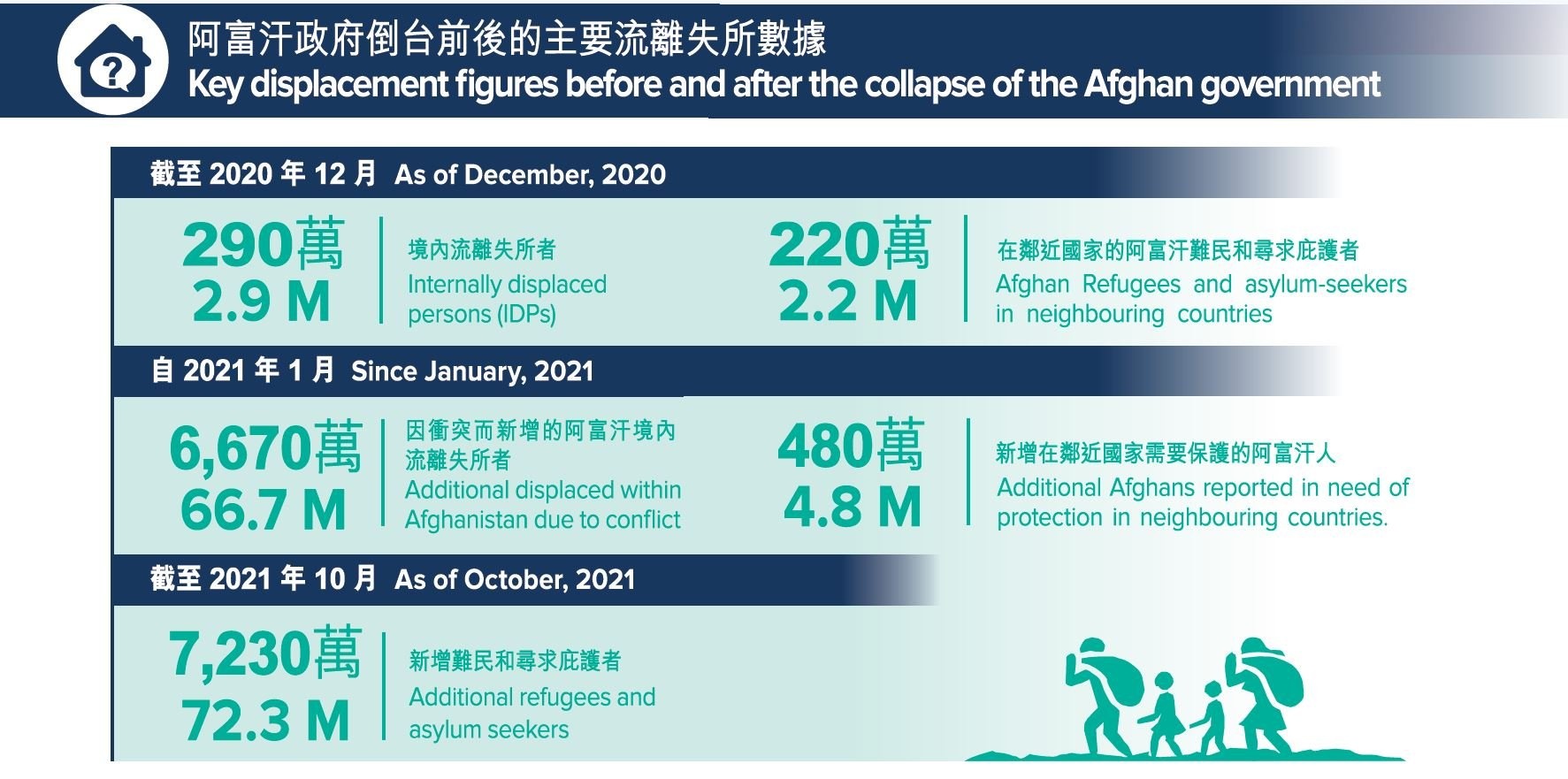UNHCR Stays and Delivers in Afghanistan

UNHCR Stays and Delivers in Afghanistan
Kotal Khairkhana is one of two parks in Kabul where displaced people are living in the open or under makeshift tents. While millions of Afghan displaced/IDPs already live under the protection of UNHCR, recent events in Afghanistan have sent countless more fleeing their home.
Most of us have probably watched clips of the mad scenes at the Kabul airport, as thousands of Afghans made their last ditch attempt to flee the country after the Taliban takeover. The latest wave of brutality culminating to this event – the latest in 40 years of conflict – has forced more than half a million Afghans from their homes so far this year.
Of the 665,000 Afghans newly displaced inside the country in 2021, 80% of whom are women and children.
Many have come to the capital Kabul in search of food, jobs and aid, where families speak of having had to flee at a moment’s notice, even when faced with the risk of improvised explosive devices and attacks by armed groups as they fled.
“Rockets kept falling near our homes. We were forced to move to Kabul with only the clothes on our backs when our house caught fire after being hit, ”
said Safi Ullah, 25, who fled from Nangarhar Province in July. This year has seen the highest number of conflict-related casualties on record.
Insecurity is not the only factor forcing people to abandon their homes. COVID-19 remains a threat as only about 4% of the population is vaccinated. Worse, the country is experiencing its second severe drought in four years. Food production has been hit hard.
“In our province, our farms did not make enough harvest and we did not have any other income,”
According to the World Food Programme, only 5 % of Afghans had enough to eat as of mid-September. Hunger was widespread even before the Taliban took control of the government in August. Unless help arrives soon, many won’t make it through the winter.

65-year-old grandfather, Zerwali, who heads a 26-member family
Zerwali talked of how his clan has been going on for days without food ever since leaving Pakistan to return to Afghanistan, where they discovered that their home had vanished. The family has been living in the open in Kabul since August. The Afghan winter is savage. Not only can temperatures fall below –25⁰C; some regions are buried under more than a metre of snow.
“We go for days without food. But right now, anything is something.”
Thousands of vulnerable families will need shelter kits, cash assistance, thermal blankets, warm clothing and heaters before conditions turn deadly and roads impassable.
Winter is harsh for refugees. Give them the warmth of hope.





